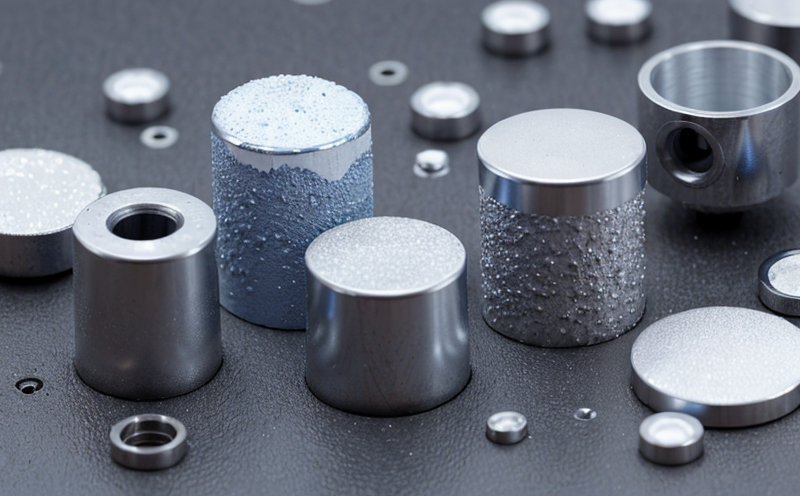Influence of impurities and defects on fracture toughness
The Hidden Threat to Material Integrity Understanding the Influence of Impurities and Defects on Fracture Toughness
As manufacturers, engineers, and researchers, we rely on materials to perform optimally under various conditions. However, even the smallest imperfections can have a significant impact on material behavior, leading to unexpected failures and costly downtime. The influence of impurities and defects on fracture toughness is a critical concern for businesses operating in industries such as aerospace, automotive, energy, and construction.
Fracture toughness, a measure of a materials ability to resist crack propagation, is a vital property that determines the safety and reliability of structures and products. Impurities and defects can significantly reduce fracture toughness, making materials more susceptible to failure under stress, strain, or other environmental factors. Understanding this phenomenon is crucial for ensuring product quality, preventing accidents, and reducing costs associated with material failures.
What is Influence of Impurities and Defects on Fracture Toughness?
Influence of impurities and defects on fracture toughness refers to the degradation of material properties due to the presence of imperfections or contaminants. These imperfections can arise from various sources, including
Defects Manufacturing processes, such as casting, forging, or machining, can introduce defects like cracks, voids, or inclusions.
Impurities Chemical contaminants, either intentionally added (e.g., alloying elements) or unintentionally introduced (e.g., during processing), can affect material properties.
Surface Finish Rough surfaces or inadequate surface treatments can compromise fracture toughness.
The influence of impurities and defects on fracture toughness is a complex phenomenon that depends on various factors, including
Material type and composition
Impurity concentration and distribution
Defect size, shape, and orientation
Environmental conditions (e.g., temperature, humidity)
Why is Influence of Impurities and Defects on Fracture Toughness Essential for Businesses?
Investigating the influence of impurities and defects on fracture toughness offers numerous benefits for businesses
Benefits of Understanding Impurities and Defects on Fracture Toughness
Improved Product Reliability By identifying potential weaknesses, manufacturers can design more robust products that meet or exceed performance expectations.
Reduced Failure Rate Early detection and mitigation of impurities and defects can minimize the likelihood of catastrophic failures.
Cost Savings Avoiding material waste and rework associated with failed products or structures can result in significant cost savings.
Enhanced Safety Understanding fracture toughness degradation can help prevent accidents caused by material failure, protecting both people and property.
Key Benefits of Our Influence of Impurities and Defects on Fracture Toughness Laboratory Service
At Eurolab, we provide an extensive range of laboratory services to help businesses understand the influence of impurities and defects on fracture toughness. Our comprehensive testing programs include
Services for Investigating Impurities and Defects on Fracture Toughness
Materials Characterization Identify material properties and potential weaknesses using techniques like X-ray fluorescence (XRF), scanning electron microscopy (SEM), or energy-dispersive spectroscopy (EDS).
Fractography Analysis Examine fracture surfaces to determine the causes of failure, including impurity-related defects.
Mechanical Testing Conduct tensile, compression, or impact testing to measure material strength and resilience.
QA Frequently Asked Questions about Influence of Impurities and Defects on Fracture Toughness
Frequently Asked Questions
Q What are the most common types of impurities that affect fracture toughness?
A Common impurities include alloying elements, residual gases (e.g., hydrogen), or environmental contaminants.
Q How do defects influence fracture toughness?
A Defects can create stress concentrations, which can initiate crack growth and reduce material strength.
Q Can I perform these tests in-house, or do I need to rely on external laboratory services?
A While some basic testing can be performed in-house, specialized equipment and expertise may be required for comprehensive evaluation of fracture toughness degradation.
At Eurolab, our team of experienced engineers and technicians is dedicated to providing high-quality laboratory services that address the complex challenges associated with impurities and defects on fracture toughness. Trust us to help you optimize material properties, prevent failures, and ensure product reliability.
Conclusion
Understanding the influence of impurities and defects on fracture toughness is essential for businesses operating in industries where material integrity is critical. Our comprehensive laboratory services at Eurolab provide a thorough evaluation of material properties, helping manufacturers identify potential weaknesses and optimize product performance. Dont compromise on material safety choose our expert testing solutions to ensure your products meet or exceed industry standards.




